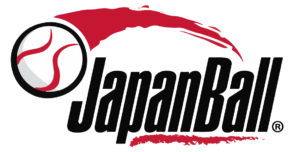By Carter Cromwell
There was a point at which Daniel Catalan was considering life after baseball. Now it’s more like baseball is his life.
A native of Los Angeles, Catalan played at a couple of junior colleges and at Holy Names College in Oakland, Calif. Upon graduating in 2014, he didn’t have a clear view of what lay ahead, but baseball wasn’t in his line of sight. Until it was.
Bitten by the travel bug, he discovered a ballclub in Barcelona and went there to play in 2015, and that started a baseball odyssey that’s so far taken him to four continents and more than 25 countries. He’s since had stints playing and/or coaching in France, Australia, Poland and Chile; founded a training facility in Santiago, Chile; spent several months last year as an intern at the innovative Driveline Baseball training facility; and then coached in the Japan Winter League (JWL).

Photo: Catalan with CTBC Brothers club of the Chinese Professional Baseball League.
“It’s amazing how far I’ve stretched baseball,” he said. “Sooo far.”
And it now stretches all the way to Taiwan. Thanks to contacts made at the JWL, he recently became hitting coach for the CTBC Brothers club of the Chinese Professional Baseball League.
Upon completing the Driveline internship, he applied for some minor-league positions with Major League Baseball (MLB) organizations, but nothing had come through prior to the beginning of the winter league. At that point, Ryoma Watanabe – a friend, former teammate, and coaching colleague who was set to be a team coordinator at the JWL – arranged for him to be a hitting coach.
There, Keiichi Hirano, who played in Nippon Professional Baseball (NPB) from 2002 through 2015, observed one of Catalan’s hitting sessions and followed him for a couple of weeks. He was impressed enough to ask if Catalan was interested in working in Taiwan.
Several days later, Hirano asked Catalan to work with a few professional players – “kind of like a live interview,” Catalan said. The Taiwanese club later contacted him, and things progressed from there.
“The people from the Brothers told me it was unusual for them to hire someone without pro playing experience, so the Driveline internship really helped.” Catalan said. “My goal had been to coach at a professional level, and this is a great opportunity. It wouldn’t have happened if I hadn’t been at the JWL. It was just for fun, and it turned into something even better.”
And it also might not have happened if he hadn’t taken a leap of faith and gone to Barcelona in 2015.
“I hadn’t traveled much to that point, but I just went on my own and was there for seven months. The club didn’t give me anything,” he said. “I got my TOEFL [teaching English to non-native speakers] certificate and just kind of survived.”
He even talked Adan Cabrales, a long-time friend and high-school teammate, into joining him.
“He was researching online and said, ‘Wow, they play baseball in Barcelona!’ and just went there,” said Cabrales, now a high-school math teacher at their alma mater in Downey, Calif. “That’s kind of Daniel’s MO. He’s good at figuring out what he wants to do and making it happen. I couldn’t go [to Spain] until I finished my last college semester, so I missed the cutoff date for international players to sign. But I went anyway, and we had a great time traveling.”

Photo: Adan Cabrales, Catalan. With Rockingham Rams in Western Australia State League.
That same year, Catalan, whose father is a native of Chile, got a Chilean passport, made email contact with representatives of that country’s national team, and was accepted on the team. He hit .360 during the South American Baseball Championships in the summer of 2016 and was a major factor in Chile’s competitive stance against top South American national teams, including a narrow 7-6 loss to Brazil.
“I’ll go there once a year and play, and I’ve made a lot of friends over the years, including the captain of the team,” he said. Those connections eventually led to the training facility initiative, but more on that later.
Catalan also worked as a substitute teacher and sometimes-coach in the LA area in 2016. At the same time, he kept his baseball juices flowing by playing in adult leagues and taking a road trip with Cabrales to New York and back, during which they visited 16 MLB stadiums.
“We were both unsure of what was next when we came back from Spain,” Cabrales said. “We did that trip, and it was fantastic, but then we had to figure out our next steps.”
Those would lead to Paris, as it turned out.

Photo: Catalan, James Somerville (partner in baseball training facility in Santiago, Chile)
Eddie Murray, a UCLA graduate who had played a several years overseas, was with the Paris University Club at the time as a shortstop and assistant coach. He was searching for players for the 2017 season, found Catalan on the Baseball Jobs Overseas website, and made contact.
“I was on the verge of going back to Barcelona, but are you going to say ‘no’ to living for six months in Paris?” Catalan said with a laugh.
Both Catalan and Cabrales played for the Paris club, with Catalan excelling defensively in the outfield and also batting .370 with an .851 OPS. And after that . . .
“Well, I just kept getting invited to other places,” Catalan said wryly. “I’d always been interested in going overseas and seeing different places, and, from [Paris], it just kept getting further and further . . . and further.”
First was Poland in 2018.
A teammate in Paris was Polish and spoke of the need for an assistant coach for the U-23 national team, and it worked into much more than that – both on and off the field. The head coach of the U-23 team was also manager of a club team in Bydgoszcz and asked Catalan and Cabrales to play, with Catalan also picking up coaching duties and Cabrales assisting.
“I knew I couldn’t play forever, so I wanted the coaching responsibility. I got to implement my own crazy ideas,” Catalan said with a chuckle. “The level of play there was lower, so I could really focus on the team. It wasn’t a big deal to me if I went 4-4 or 0-4.”
Cabrales added, “It turned out great. We got to pretty much run the show, and we made the playoffs, which that club hadn’t done in a while.”
As time allowed while they were in Europe, Catalan and Cabrales took advantage of other opportunities to see and do – “pretty much anything that seemed like a lot of fun,” as Catalan put it. That included going to the World Cup soccer tournament in Russia, attending Oktoberfest in Munich, and – yes – running with the bulls in Pamplona . . . three times, as a matter of fact.
Cabrales said the idea for the latter germinated from a discussion with a friend on another team during his season in Barcelona.
“He said we should come to Pamplona the next year (2015), and we did. It was really wild.”
Indeed. The running takes place each morning of the week-long San Fermin Festival over a roughly half-mile (0.8 kilometers) course. Approximately 2,000 people on weekdays and around 3,500 on weekend days run with six bulls. Bulls can run faster than one might expect – a top speed of around 35 miles (56 kilometers) per hour, and average 15-20 miles (24-32 kilometers) per hour at the Pamplona event. Between 200 and 300 people are injured each year, and there have been 15 deaths, most by goring.

Photo: Catalan and a number of BBJO members meet up in Pamplona for ‘Running of the Bulls’
Most people don’t run the entire distance. The first part is especially dangerous because it is very narrow, and only the most experienced runners usually attempt it.
“The first year, we were with eight or nine other guys and started at the very end and then ran into the stadium,” Catalan said. “When we did it again in 2017, I told myself I had to be on more of the route so we started maybe 100 yards up the course so that the bulls would pass us. That’s the scary part. The bulls are in a pack at first but gradually get separated, and that makes it more dangerous. The crowd opens up, and the bulls run through the middle.”
But, back to the baseball journey, which turned far to the south for the 2018/2019 season of the Western Australia State league. Catalan had a contract to play for the Rockingham Rams in Perth, while Cabrales returned home to work and save some money. But after a month or so, one of team’s pitchers left, and Cabrales came over to fill the spot. The team made it the championship round before being eliminated.
Then, it was back to Poland for the summer 2019 season. Catalan again was player/manager for the club team, and both he and Cabrales assisted Watanabe with the Polish national team. Watanabe and Catalan had met at Prague Baseball Week in 2017, and the two were on opposing teams during the 2018 and 2019 seasons in Poland.
“As a pitcher, I hated Daniel,” Watanabe said, laughing. “He didn’t swing and miss much, and he got a lot of clutch hits. It seemed like he was always at bat with runners in scoring position. I didn’t want to face him.”
The 2019 season turned out to be Catalan’s last as a player, though – “I can still move around, but it’s sometimes tough to convince myself to do it.”
After a time back in LA, it was time to move on again – to Chile in early 2020 with a team of overseas players, many from the group that had run with the bulls in Pamplona. Catalan played, while Cabrales spent his time experiencing the country – “a half-baseball/half-culture trip”, as he put it.
But then Covid-19 hit in full force just before the two were going with the team to play in Brazil. At first, they decided to ignore it and keep playing, but they realized after several more days that the world was shutting down.
“One guy from Canada decided to go home, and then it was like a domino effect,” Cabrales said. “We all decided to go home while we still could. Then Daniel and I had to try and decide what our future would be.”

Photo: Ryoma Watanabe, Catalan. With Polish National Team.
In the near term, they earned their teaching certificates, and Catalan also completed work on his master’s degree in education in 2021.
As Cabrales marveled, “He just kept things going.”
Things went in a couple of directions when Covid restrictions began to loosen. In 2021, Catalan took advantage of a loophole to again go to Poland and help coach the national team. “One of the ways you could get into Europe at that time was if you were a coach with a national team,” he said, “so I was fortunate in that respect.”
Next, he opened his training facility in Chile using $30,000 of his own money – no investors. He found a vacant warehouse that served the purpose and opened in June 2022.
“I’d always had the idea of going there and doing some developmental work,” Catalan said, “and I’d saved up some money during Covid and thought it was time to do it. I had a buddy who had moved to Santiago for work, and now he’s kind of running everything while I go down there whenever I can.”
The facility uses tools such as Rapsodo and Blast Motion, and he says they have worked with “hundreds of kids” over time. Most of the players are from Venezuelan families who have left that country during the last several years because of its economic and political difficulties.

Photo: Catalan (front row left), poses with staff at his facility—Academia de Besibol Chileno—in Santiago, Chile.
“They have raw skills, but we’re training them in a different way than they’re used to,” Catalan said. “We have some kids who are too young to talk about geometry, but they can talk exit velocities, spin rates, etc. [After leaving Venezuela] a lot of these kids thought they were through with baseball, but they tell me now that they see there’s more they can do. I feel better about that than if I made big profits.
“I hope this expands and goes forever,” he added. “The kids get training; my buddy gets a salary; and the investment helped me get the internship at Driveline. It’s the coolest thing I’ve ever done.”
And the internship at Driveline was a factor in him getting the coaching position in Taiwan. So one thing helps beget another.
“I’m going to have a lot to adjust to, but it’s a great opportunity and I’m really excited,” Catalan said after arriving in Taichung in mid-January. “I’m going from being an amateur or semi-pro to being a pro.”
Which doesn’t at all surprise those who know him.
“I’ve always been impressed with Daniel, and I saw at the winter league that Hirano was immediately interested in what Daniel was saying and teaching about hitting mechanics,”
Watanabe said. “He coaches from the standpoint of experience, as well as knowledge. He’s kind of an old school/new school hybrid. That’s why players really listen to him. When you just talk data all the time, players can get annoyed.”
Cabrales, the long-time friend, has seen Catalan’s drive for years.
“He’s really driven about baseball,” Cabrales said. “He found the Spanish team on his own, and the same with the Chilean national team. He’s a go-getter and makes things happen, so nothing he’s done surprises me.”
Not ready to hang them up? Seeking a new career path?
Annually our members sign over 300 contracts overseas. There are a variety of levels overseas which present opportunities for players and coaches, both aspiring and established professionals.
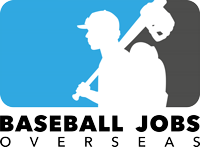
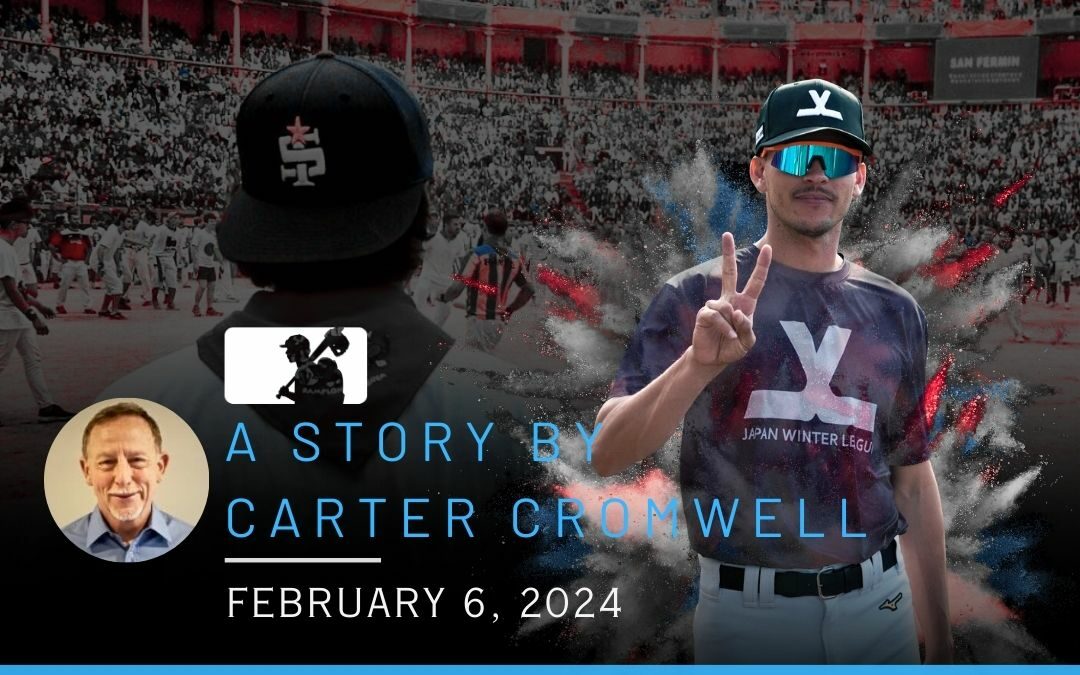
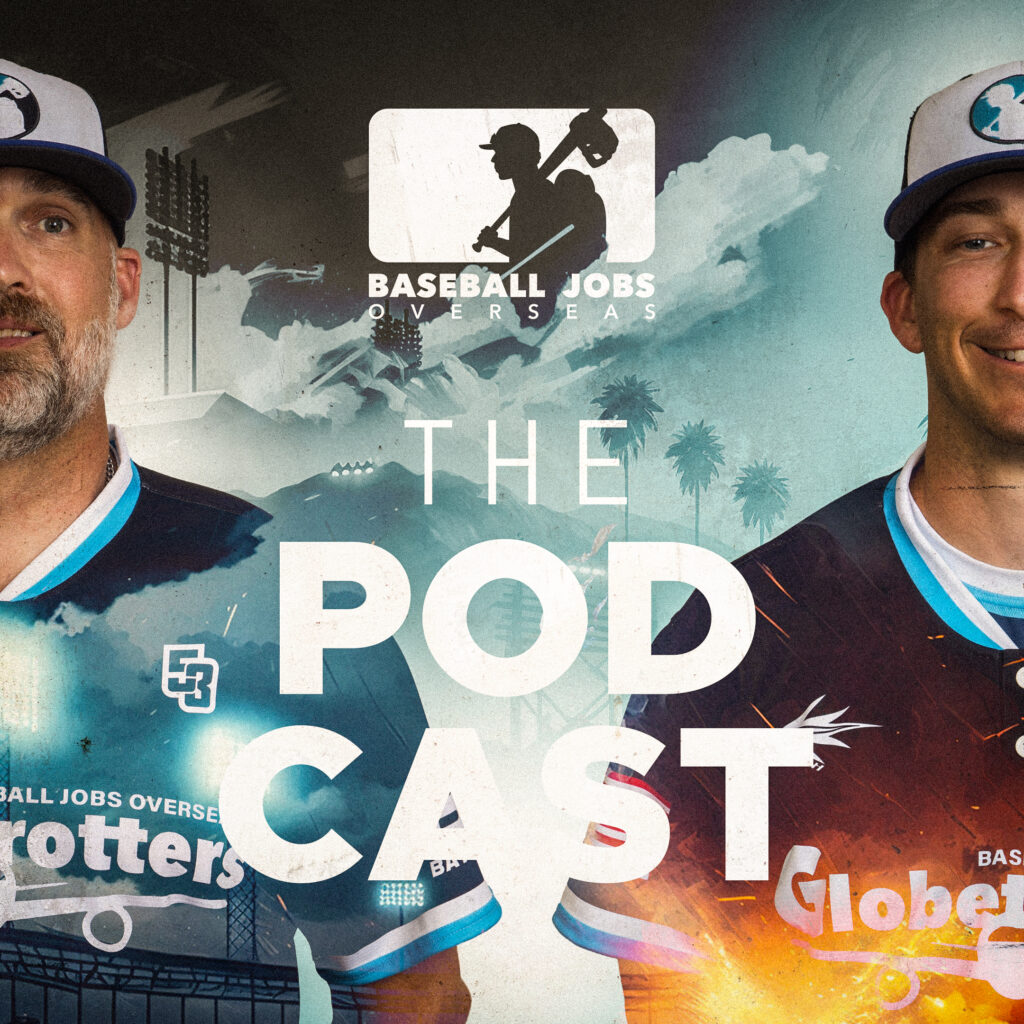
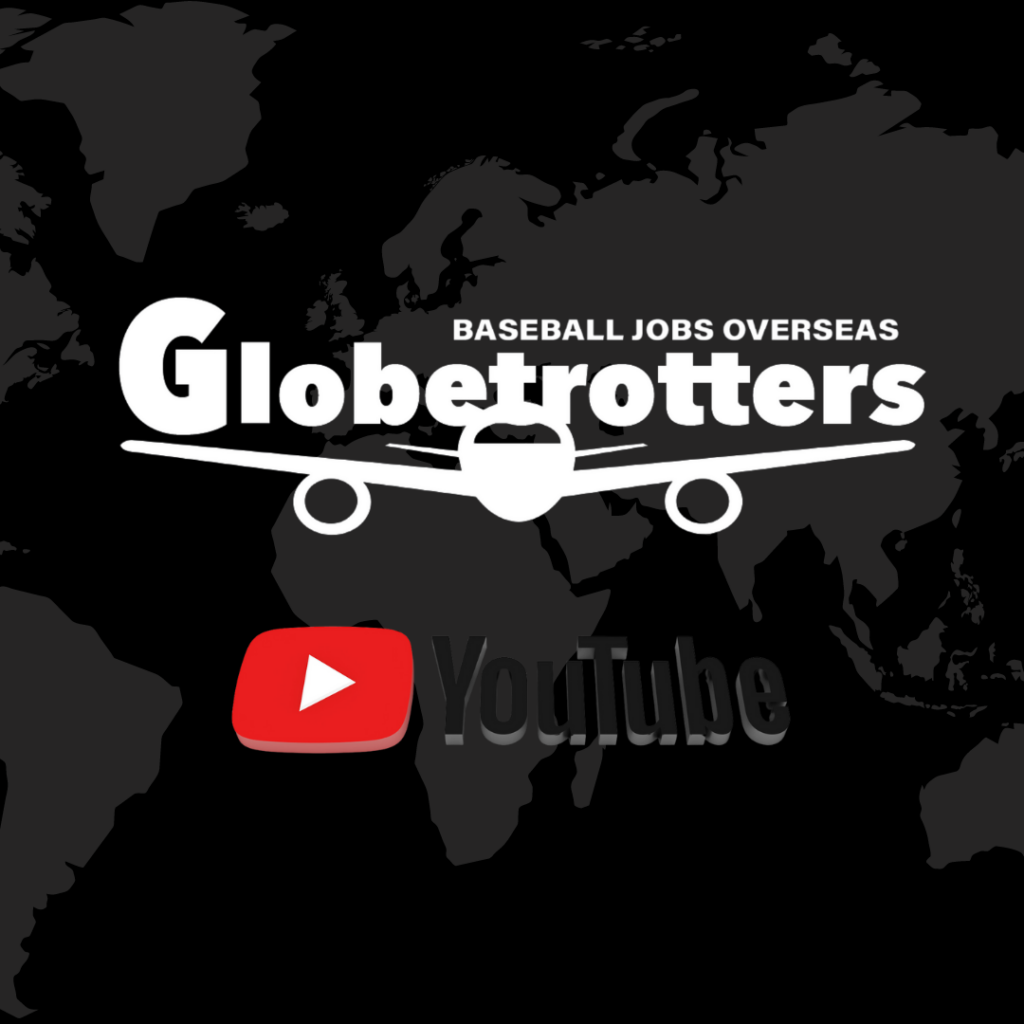
 Moonshot is a baseball apparel company based out of Mannheim, Germany, and is owned and operated by a good friend of ours, Juan Martin. What separates Moonshot from the other companies we have used in the past, is the value for your money and the customer service. You will not find prices like this in Europe or someone that responds faster.
Moonshot is a baseball apparel company based out of Mannheim, Germany, and is owned and operated by a good friend of ours, Juan Martin. What separates Moonshot from the other companies we have used in the past, is the value for your money and the customer service. You will not find prices like this in Europe or someone that responds faster. 
 High end, professional wood and composite bats with a wide selection of models using many different types of wood from Japan, North American and Taiwan. Hakusoh Bat is approved with the WBSC and across Europe.
High end, professional wood and composite bats with a wide selection of models using many different types of wood from Japan, North American and Taiwan. Hakusoh Bat is approved with the WBSC and across Europe. 




